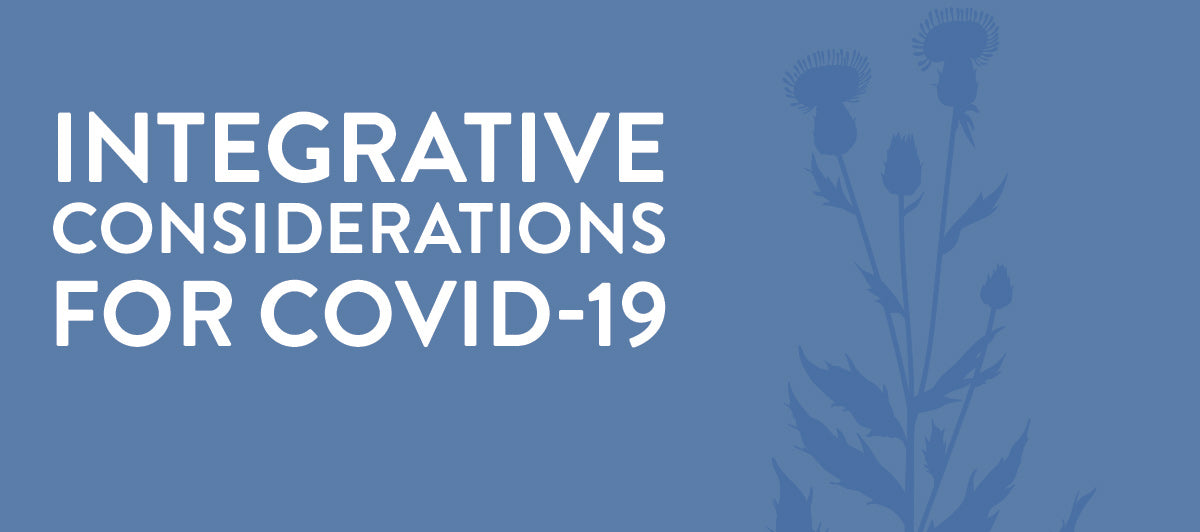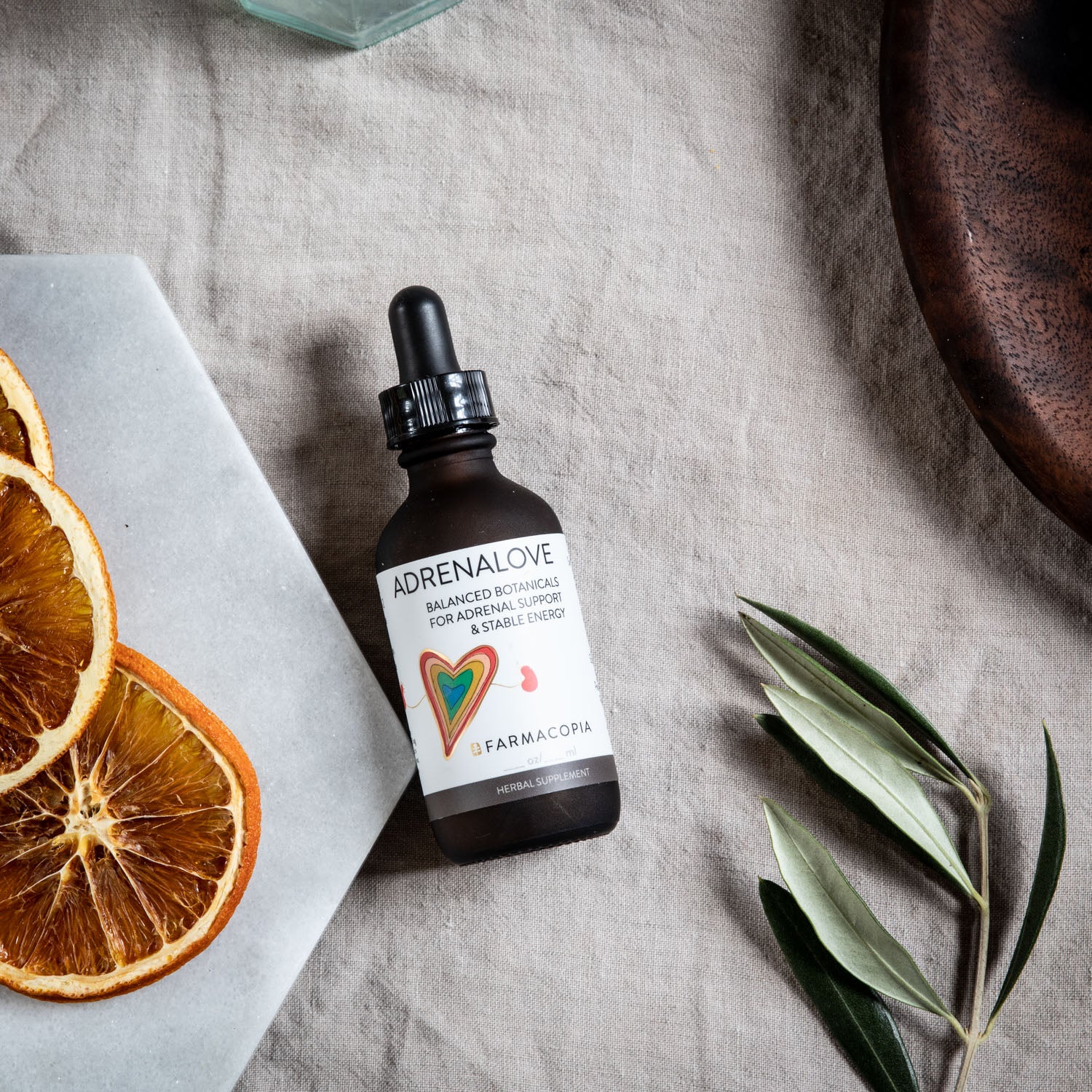Farmacopia's thoughts on Dr. Weil's latest article.
I have been getting so many questions from concerned clients and customers about Covid-19! On March 26th, an article by a group of researchers and doctors was made available online that evaluates some of the considerations for integrative approaches to Covid-19. Here is a breakdown of that article, along with some thoughts on this interesting and evolving subject matter.
Lily Mazzarella, MS, CNS
Owner, Farmacopia
 As the novel coronavirus pandemic continues, one thing is clear: many people feel on their own with this. An initially slow governmental response, confusion and emerging information about how the virus spreads, difficulty attaining testing, and the fact that non-critically ill Covid-19 patients are instructed by their doctors to stay home, means that people are looking for ways to both protect themselves from Covid-19 infection and see themselves through it at home should they contract it.
As the novel coronavirus pandemic continues, one thing is clear: many people feel on their own with this. An initially slow governmental response, confusion and emerging information about how the virus spreads, difficulty attaining testing, and the fact that non-critically ill Covid-19 patients are instructed by their doctors to stay home, means that people are looking for ways to both protect themselves from Covid-19 infection and see themselves through it at home should they contract it.
And while the FDA just fast-tracked the approval of two anti-malarial drugs in the management of hospitalized Covid-19 patients, there is still no known prevention or cure for the disease. Realizing that many people will turn to natural medicines and integrative approaches to support their health, a group of researchers and doctors at the Andrew Weil Center of Integrative Medicine at the University of Arizona published a research review in the journal Explore.
First, it’s important to note that the article’s authors stress that "The information and understanding of COVID-19 continue to change rapidly. We encourage you to make integrative recommendations carefully and with consideration of the underlying mechanisms of both the COVID-19 infection and the intended intervention. It is also important to reiterate that to date there are no clinically evidence-based integrative prevention or treatment strategies for COVID-19 infection."
We encourage you to read the article, which is well-referenced and helpfully divided into 2 categories: "Risk Reduction," and "During Symptoms of Infection or Positive Test for Covid-19."
For example, two substances that appear to be potentially useful in risk reduction, Vitamin D and Elderberry, may not be appropriate in high and consistent doses during an active Covid-19 infection, as they may potentially upregulate the cytokines (aka, immune messenger molecules that respond to infection) IL-1B and/or IL-18; these messengers participate in the "cytokine storms" of severe infection. The FAQ section on the Andrew Weil Center of Integrative Medicine at the University of Arizona website simply suggests discontinuing Vitamin D supplementation temporarily during Covid-19 infection, as well as stopping Elderberry supplementation (for a nuanced look at Elderberry, see this article).
Risk reduction measures referenced in the article include:
- Adequate sleep and stress management
- Zinc 15-30 mg/day
- Vegetables, fruits, herbs, spices and isolated flavonoids such as:
- Baicalin and wogonoside (from Chinese Skullcap)
- Liquiritigenin (from Licorice root)
- Apigenin (from Chamomile, parsley, and celery)
- Quercitin (from apples, onions)
- Curcumin (from turmeric root)
- Epigallocatechin gallate (from green tea)
- Vitamin C
- Melatonin
- Elderberry
- Vitamin D
Listed by the authors as substances to avoid during active Covid-19 infection due to potential to cytokine upregulation:
- Elderberry
- Isolated polysaccharide extracts from mushrooms, such as Lentinen, PSK, or PSP (compounds approved in the treatment/management of cancers in some Asian countries)
- Echinacea
- Larch arabinogalactan
- Vitamin D
Substances listed by the authors as "Likely safe" during Covid-19 infection due to the fact that they do not appear to increase IL-1B or IL-18 as part of their immunomodulatory action:
- Garlic
- Quercitin
- Astragalus root
- Whole mushroom or mycelium extracts
- Peppermint
- Andrographis
- Green tea and extracts of green tea
- Zinc
- Vitamin A (the authors note that "hypervitaminosis A [can occur] at doses greater than 25,000 IU daily for more than 6 years or 100,000 iu daily for more than 6 months" and recommend monitoring liver function during vitamin A supplementation for any extended period of time)
- Vitamin C
We want to acknowledge that herbal medicines are complex, as are our immune systems. We don’t know, for example, how high a dose of Elderberry might be problematic for a Covid-19 patient (if at all); nor how other herbs in a formula might mitigate some of these concerns.
In general, we prefer to not reduce complex botanicals to mechanisms; however, in the absence of more thorough understanding, we are very grateful that Dr. Weil and his team took initiative to provide this important perspective on what undoubtedly so many of you are wondering.
We also want to acknowledge that the authors are not suggesting the "Likely Safe" herbs treat Covid-19; they are simply saying that these substances are likely safe to take while sick with Covid-19.
Based on these recommendations, we are making a version of our very popular "Got Sick" tincture that excludes Echinacea and Elderberry extracts. We are in no way promoting this tincture as a preventative or treatment for Covid-19, we are simply letting you know that we are making this product available to those of you who want it made without those ingredients during this time.
The statements in this article are meant to be informative, not to diagnose or prescribe any treatment of symptom or disease. The statements in this article have not been evaluated by the FDA.
Lily Mazzarella is not a medical doctor, and does not take the place of a medical doctor. She is a Clinical Herbalist and Certified Nutrition Specialist, and offers information and guidelines pertinent to her field of Health. Farmacopia is a center for health promotion and information.

